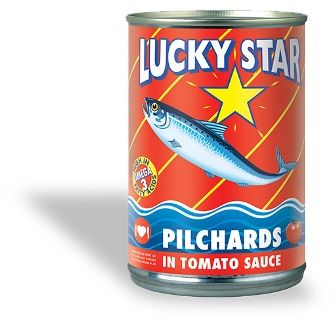
Woolworths customers warm to Lucky Star
By: Nompilo Goba and Jacqueline Mackenzie – Business Live
Oceana, the owner of the canned fish brand, has reported a big surge in acceptance among higher-income shoppers
Lucky Star, a well-known canned fish brand, has shifted its focus to attract high-income consumers, leading to a rise in sales at premium retailers such as Woolworths.
Oceana, the company that owns the Lucky Star brand, on Monday reported a remarkable surge in “acceptance among higher-income shoppers”.
Oceana CEO Neville Brink told Business Day Lucky Star’s canned pilchards, traditionally known to be affordable, had now captured the attention of affluent shoppers. This shift was partly attributed to the product’s quality and convenience.
Brink said the growing demand shows a product with a long-standing association with economic affordability can still captivate high-end markets.
Brink highlighted Lucky Star’s resilience in a challenging economic climate, in which high inflation and stagnant growth put pressure on consumers. He said despite this, Lucky Star thrived, emphasising its appeal as a premium product enjoyed by a wide demographic, not just the economically disadvantaged.
“We have seen strong growth in Woolworths. Lucky Star is not a class purchase; people buy Lucky Star because they enjoy Lucky Star. They eat pilchards because they enjoy pilchards.
“It is not a product for the poor. It is a product for anyone.”
However, this newfound repositioning success might be met with potential competition from an unexpected rival. Previously Business Day reported that Astral Foods, a prominent name in the poultry industry, is contemplating the concept of canned chicken.
The company announced in May that it would try canned chicken to counter the canned fish market. Business Day understands the plan involves placing the new canned chicken products alongside canned fish on store shelves to directly compete for consumer attention.
This approach does not only aim to capture a share of the market dominated by canned fish but also seeks to attract budget-conscious consumers seeking value without compromising on their protein intake.
The company contended that chicken provides a better cost per gram of protein compared with fish that could offer a more economical option for consumers seeking nonperishable protein sources.
Market share
The concept of canned chicken could reshape the dynamics of the canned protein market. It might pose a challenge to Lucky Star, a household brand whose market share has grown with its upscale repositioning.
Oceana remains unfazed. Brink downplayed the competition from Astral, suggesting that while there is a demand for various protein options, Lucky Star remains focused on affordability to retain its market share.
“What we are all struggling with is the affordability [to] all consumers who consistently buy protein. We [Lucky Star] want to remain affordable. That is the key component,” he said.
Oceana on Monday reported earnings growth of 85% as US-based Daybrook reported record first-half earnings and Lucky Star experienced improved second-quarter canned food sales volumes.
The group’s revenue from continuing operations was up 12.1% to R5bn for the six months to end-March, while profit from continuing operations increased 74.2% to R716m.
Headline earnings per share (HEPS) were 84.6% higher at 578.8c. An interim dividend of 195c was declared, an increase of 50%.
Lucky Star reported improved sales volumes in the second quarter.
Canned fish volumes declined 3.3%, with overall canned food volumes down 20.8%, compounded by a canned meat shortage during the transition from outsourced to in-house manufacturing.
Local canning production volumes reduced as planned by 41.2% to 1.5-million cartons due to the decision to close both west coast plants earlier than usual to implement factory upgrades, which were completed in mid-January.
News Category
- International retailers
- On the move
- Awards and achievements
- Legislation
- Wine and liquor
- Africa
- Going green
- Supplier news
- Research tools
- Retailer trading results
- Supply chain
- Innovation and technology
- Economic factors
- Crime and security
- Store Openings
- Marketing and Promotions
- Social Responsibility
- Brand Press Office
Related Articles

Warning of Eskom collapse

Knorr recalls brown onion gravy sachets

Eskom CEO shares good news about load-shedding

Tax warning for South African businesses


